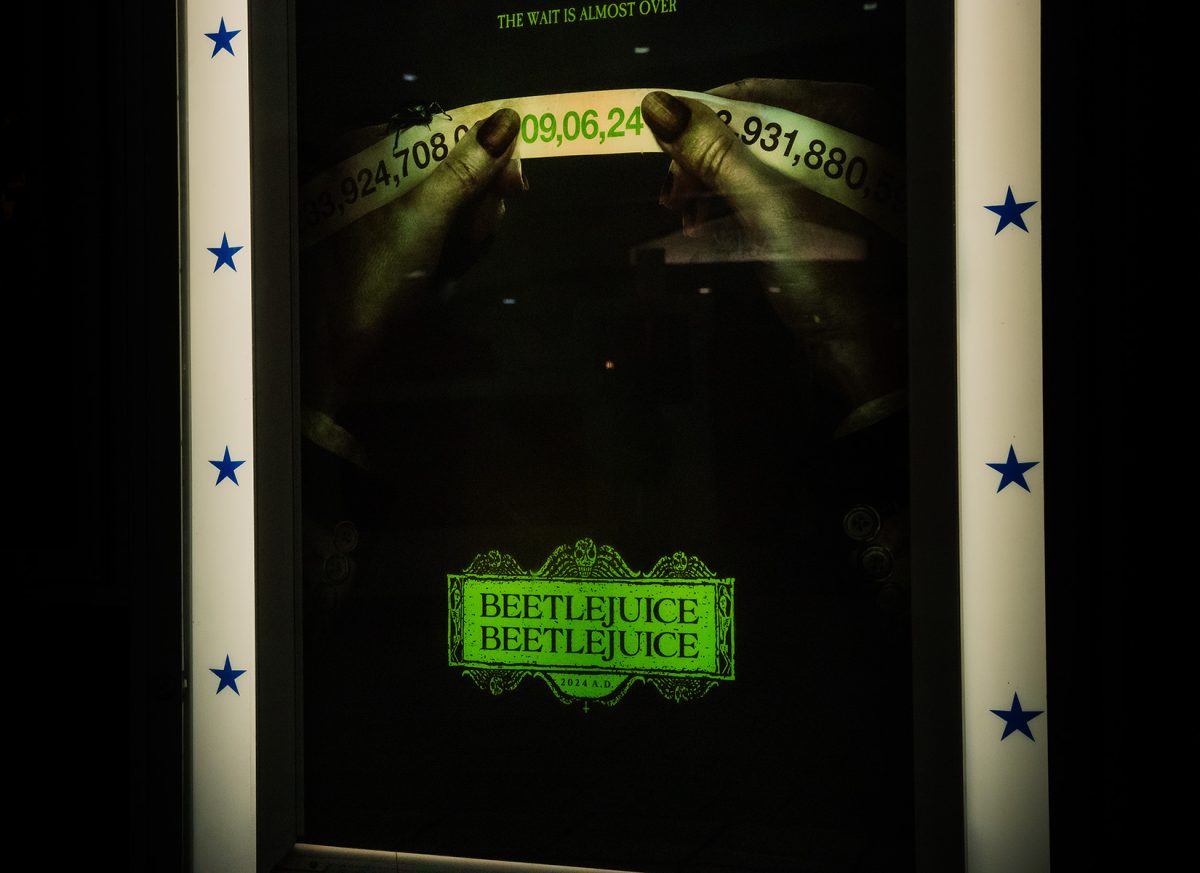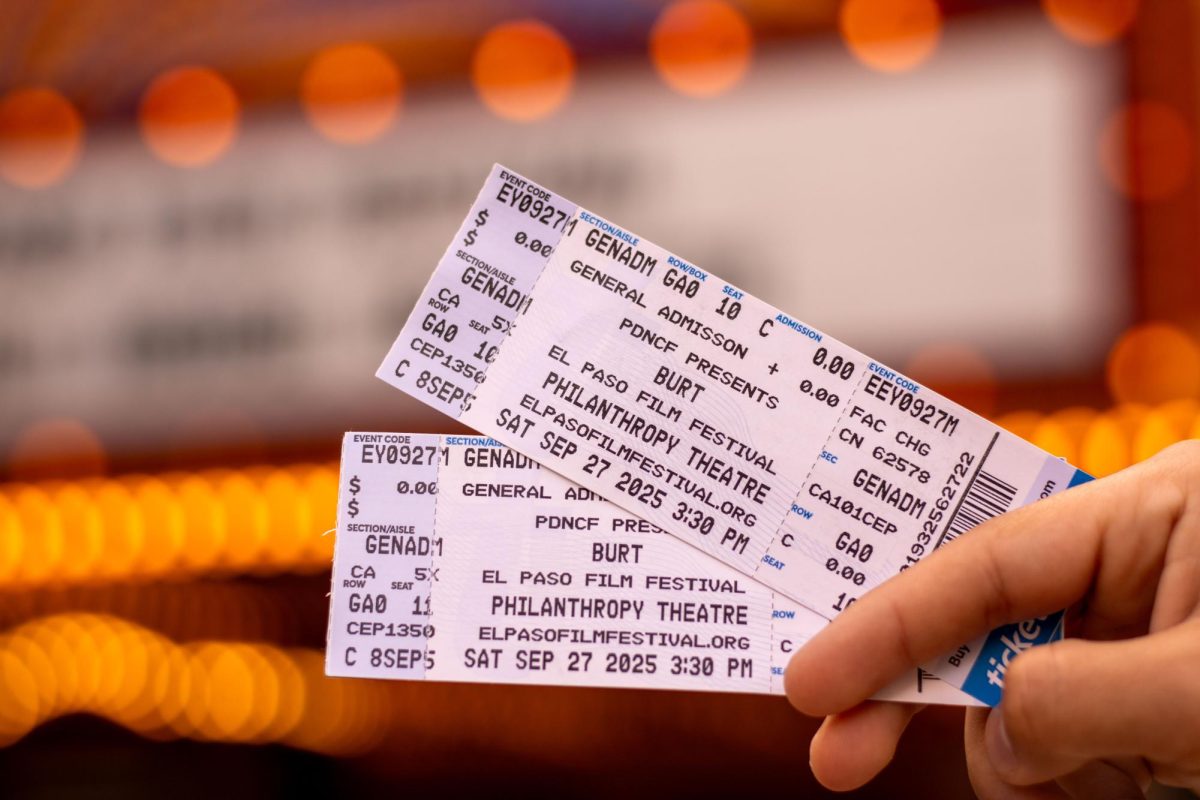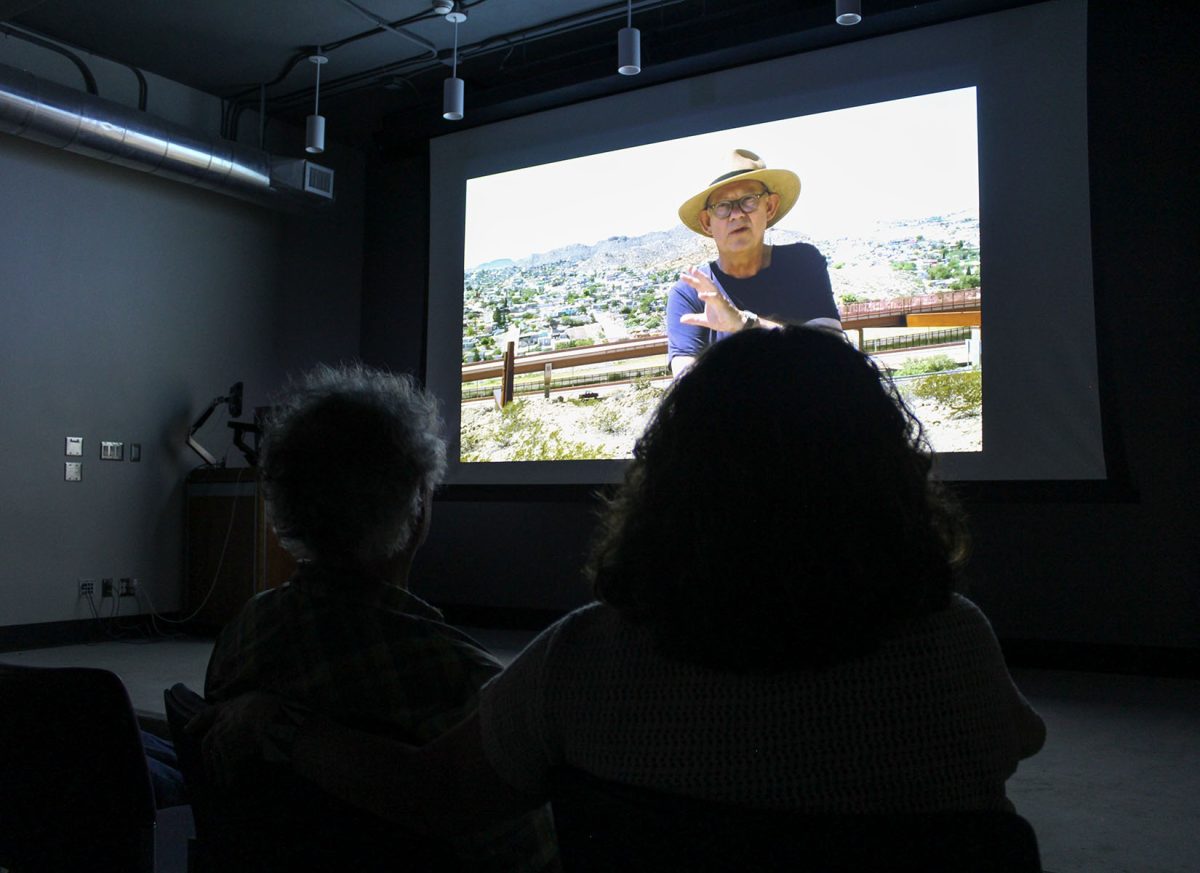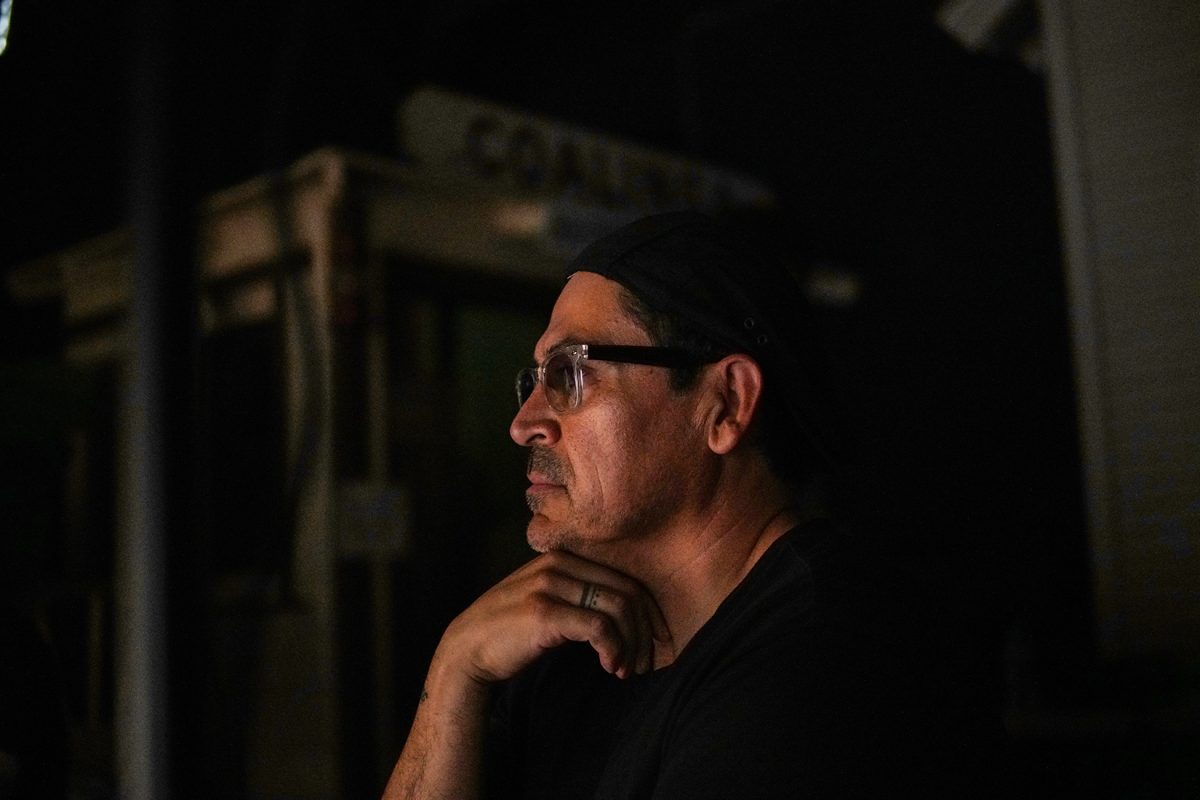Following the 1988 release of Beetlejuice, Tim Burton has brought back both longtime fans and newer generations to theaters —36 years later— with the newest release of Beetlejuice Beetlejuice. This time with the addition of new characters, new storylines, and gore that really pushes the boundaries of its PG-13 rating.
Viewers are introduced to Hollywood’s favorite ghost, played by Michael Keaton, who hasn’t missed a beat in his return as the mischievous, crude, and oddly charismatic Beetlejuice. From his chaotic antics to his comedic mannerisms, Keaton delivered his role as Beetlejuice with such accuracy that one might imagine it has not been nearly four decades since the first film’s release.
But it doesn’t stop there.
The sequel offers much more than nostalgia: it expands its strange, eerie universe with richer backstories, new storylines and a ride of unpredictable twists.
The most shocking aspect that sets Beetlejuice Beetlejuice apart from its predecessor is the willingness to push the envelope, raising the bar with the use of special effects.
From the gruesome features of the underworld’s characters to a twisted version of the Soul Train that sends people to “The Great Beyond” in a disco-filled dance sequence, the imagination of Tim Burton is brought to life. Ensuring viewers are in for a rollercoaster of both laughs and unpredictable scares (like the ending birth scene that still haunts my sleep).
Burton masterfully balances horror and comedy, tapping into that strange internal conflict where part of you wants to run out of the theater, but the other part just can’t look away.
One of the most exciting additions to Beetlejuice Beetlejuice is Gen Z fan-favorite Jenna Ortega as Astrid Deetz, the daughter of Lydia Deetz. The love/hate dynamic between Lydia and Astrid captures the familiar tension between teenage daughters and their mothers, as Astrid strives to be anything but like her mom. It’s a fascinating reversal of roles, as Lydia, the once dark and twisted teen who had no desire to fit in, is now a mother yearning for love, acceptance, and a sense of normalcy to win her daughter’s approval. Watching Lydia wrestle with these desires, even if it goes against everything she once stood for, felt authentically human. Bringing a new dimension to her character that would have easily fallen flat had her character remained the same after 36 years.
Meanwhile, Ortega shines in her role as the rebellious, angsty teen—a role that echoes the very one that made Winona Ryder a household name in the first Beetlejuice. However, Astrid isn’t a carbon copy of her mother. While Lydia embraced the supernatural and her misfit status, Astrid longs for normalcy, viewing her mother’s ghost-seeing abilities as fraudulent and embarrassing.
The film perfectly captures this stark difference, making Astrid a fully realized character.
If there’s a downside to the film, it’s that some of the new characters and plot lines felt slightly underdeveloped, occasionally falling flat. With a sprawling cast and the ambitious challenge of weaving multiple narratives into a cohesive story, a few threads inevitably get lost in the shuffle.
Many viewers criticized Monica Bellucci’s role as the soul-sucking ex-wife in Beetlejuice as an unnecessary villain within the overall storyline. While her character initially seems promising, giving the impression she will cause significant chaos and lead to a more well-rounded climax, this potential is never fully realized.
By the time the ending unfolds, it becomes evident that her character, despite receiving considerable screen time, ultimately contributed little to the narrative’s progression, feeling more like a desperate attempt to fill in gaps between connecting stories.
Still, the film never loses its charm, carried by Keaton’s undeniable presence and the quirky, otherworldly vibe that makes Beetlejuice, Beetlejuice.
The film successfully resurrects a beloved franchise with a fresh, twisted vision. It honors its predecessor while taking bold risks, making it a worthy sequel for fans of the original—and perhaps even for those too young to have experienced the first film in theaters. All in all, Burton reminds fans everywhere that while the afterlife is eternal, so is the allure of a good franchise revival.
Rumi Sevilla is a staff reporter for The Prospector and may be reached at [email protected]









